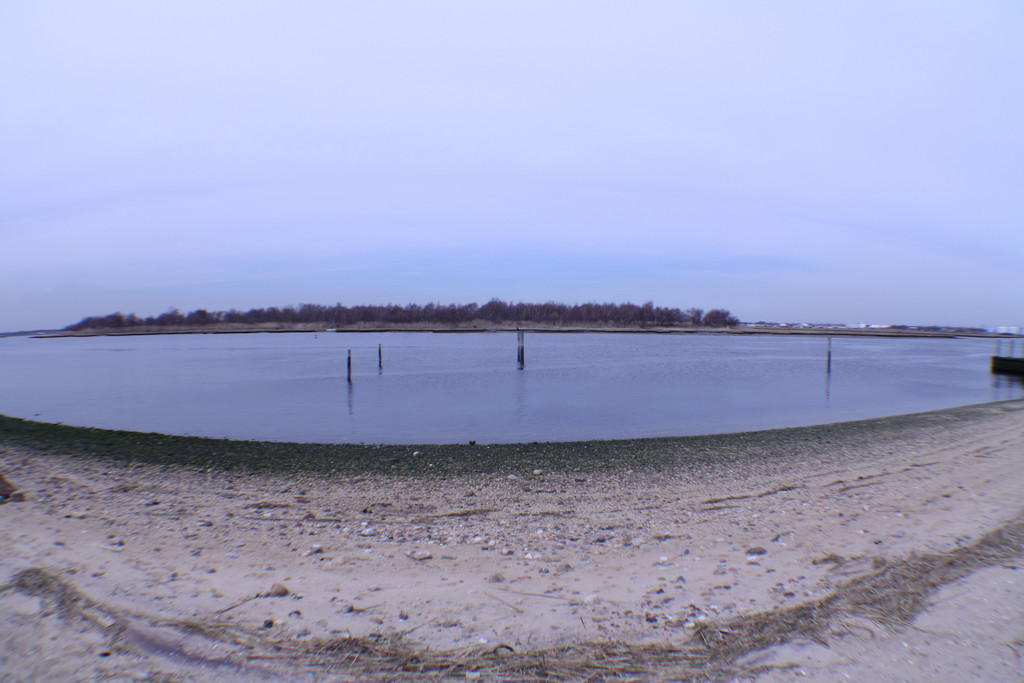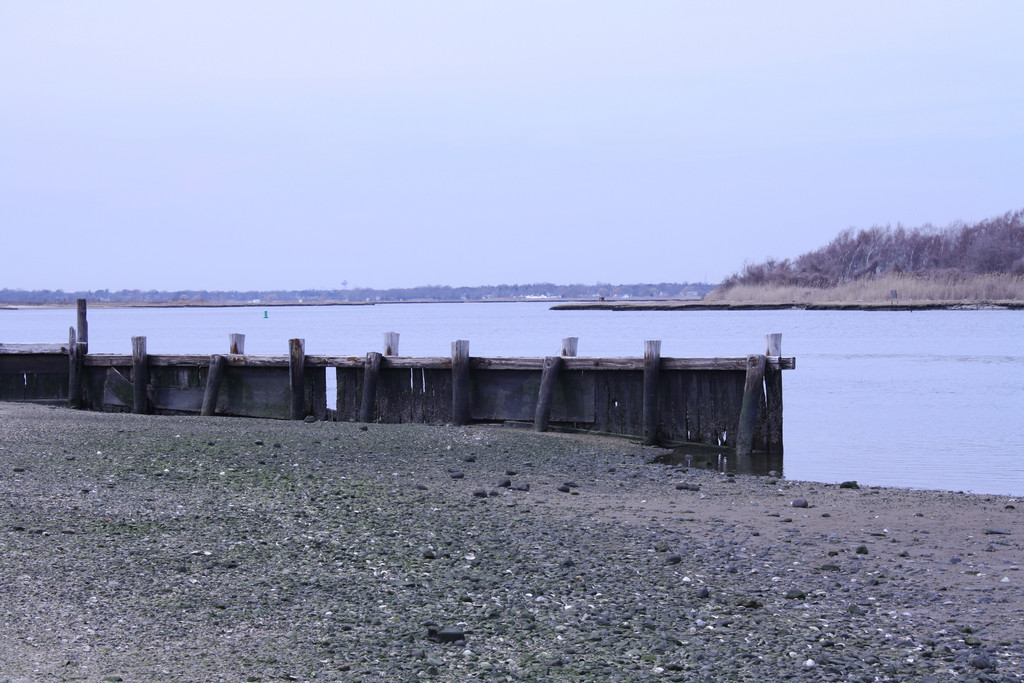Rescuing Little Beach
Erosion is destroying the Island Park shore, but can it be saved?
Every year, Little Beach, off Pershing Place in Island Park, becomes littler.
Mayor Jim Ruzicka estimates that the beach is about 75 percent smaller than it was a decade ago. There has been so much erosion that the beach is being washed away, and Ruzicka is worried that Little Beach could become a large problem for the village. He is concerned that, if the erosion goes unchecked, that entire area of the village could start flooding and become almost unlivable.
The shoreline has eroded so much over the years that at high tide, water laps against the walls of the backyards of the nearest homes. When asked what he thought of the situation, Ruzicka said simply, and gravely, “It’s bad.”
“It gets worse every year,” he added. “We did put some sand on the beach, but it washes away as quick as we put it down.”
Ruzicka said that he is hesitant to commit too much money to the beach right now. He is concerned that anything the village does could be ineffective or, worse, wrong and even more damaging. So he has reached out to the Army Corps of Engineers for help.
“The Army Corps did meet with me last [March], and they did say they were going to do something, but so far, nothing,” Ruzicka said. “They said last time we talked to them that the appropriations weren’t there yet to come up with a plan. It seems like everyone is dragging their feet here.”
But what may seem like a case of a small village’s problem slipping through bureaucratic cracks isn’t quite that simple. Steve Couch, chief of the Coastal Section and Planning Division of the New York section of the Army Corps of Engineers, outlined what happened to Ruzicka’s request: It was a victim of poor timing.
Couch was one of the people who met with the mayor last March and is familiar with the erosion of Little Beach. After seeing the situation, officials determined that aid for Little Beach could fall under the Army Corps’ Section 103 program, which is dedicated to small shore protection.
The Army Corps’ practices have changed in the restrictive budget climate in Washington in recent years. The agency used to have jurisdiction to assign funding to some new projects (called “new starts”), but Congressional approval is now needed for all new starts — including aiding Island Park.
But that was just the first delay. For most of this year, the federal government has been operating without an official budget, getting by on “continuing resolutions” — spending resolution after spending resolution. In that atmosphere, there just isn’t the money right now for a new start in Island Park. And to top it off for Little Beach, under President Obama’s proposed budget, new Section 103 programs wouldn’t receive funding — meaning that it could be a long time before the Army Corps could help Island Park with its erosion.
Ruzicka was hoping the Army Corps could help fund the project, along with the village and possible storm recovery grants from the Federal Emergency Management Agency.
Couch said that if the Army Corps can’t provide funding and aid for actual work on the beach, it may still be able to act in an advisory capacity. “What we’re looking at now is if there might be some other opportunities where we can give some technical assistance to Island Park,” he said. “So there may be some programs in the corps where we can assist them with at least getting some plans together that could help in that respect.”
Ruzicka said that when the Army Corps first came to town a year ago, there was talk of not only repairing the deteriorating bulkhead on Suffolk Road, but also installing a new bulkhead in the middle of Little Beach.
Couch added that the Army Corps would consider other options that could be implemented to save the beach. “Island Park, because it’s in the back bay environment there, there are a number of regulatory challenges as to what can be done,” he said. “But I think having a beach there is more desirable than just a bulkhead.”
The Little Beach erosion is a problem that Ruzicka wants to solve while there’s still a beach to save. “If we lose more of that beach, it’s going to be a big flooding problem for the village,” he said. “We could lose that whole area.”

 47.0°,
Mostly Cloudy
47.0°,
Mostly Cloudy 







